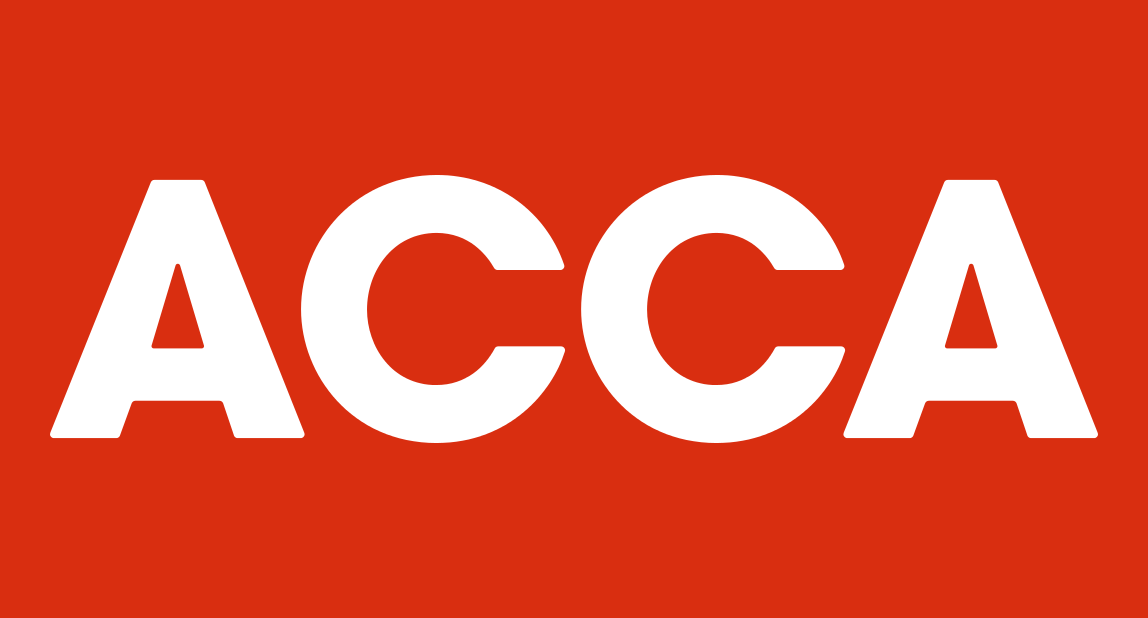Knowledge Portal: Managing Business Finances and more
CHRIS BARNARD November 8, 2024
Essential Budget Updates Every Business Owner Needs to Know
Every year, the budget brings a wave of new tax policies that impact businesses across the UK.
These changes can affect everything from how you take on employees to what company vehicles to choose. In this blog, we break down the latest updates, highlighting what matters most to business owners. Our goal is to translate complex tax changes into clear, actionable advice so you can make informed decisions for your business.
Let’s take a closer look at some key areas like business taxes, vehicle incentives, capital allowances, and more and explore how you can adapt your strategy for maximum benefit.
Company Car Tax: Incentives to Go Green
As expected, a key theme in this budget is the emphasis on environmental sustainability, particularly in vehicle taxation. If your business relies on company cars, here’s what you need to know:
- Zero-Emission and Electric Vehicles (EVs): Despite the announcement of a gradual increase of two percentage points per year, the total AP for this bracket will be 9% by 2029-30. This is a clear incentive for businesses considering electric cars to transition now and avoid the hikes for other vehicles. Investing in EVs could lead to significant savings over time, reducing both environmental impact and tax costs.
- Hybrid Vehicles: Hybrid vehicles will see a higher tax rate, reaching 19% by 2029-30. If your fleet is currently made up of hybrids, it may be time to consider shifting to full EVs to capitalise on lower benefit-in-kind taxes.
- Higher Emission Vehicles: For vehicles with higher emissions, expect a gradual 1% annual tax increase, up to 39% by 2029-30. This means businesses using high-emission vehicles will face a significant tax burden, making the shift to greener options not only environmentally friendly but financially savvy, too.
- Double Cab Pick-Ups: From April 2025, double cab pick-ups with a payload of one tonne or more will be taxed as cars rather than commercial vehicles for corporation and income tax. This will affect capital allowances and benefits in kind. The good news is for those bought before this date, the old taxation will remain until they are either disposed of, the lease ends, or we reach April 2029. Commercial vehicles carry greater tax benefits, so this news means many businesses will face higher costs and may need to revisit their vehicles going forward.
Could these tax changes make now the right time to update your fleet? Switching to electric might bring long-term savings and help reduce your carbon footprint as a business.
Tax Tip: Taking out shorter leases on vehicles through your business will give you more flexibility to move to EVs. When the benefit-in-kind tax rate goes over 8.75% it will be taxed more than the lower rate dividend, so this will be a good time to look at switching to full EVs.
Capital Allowances: Enhanced Deductions for Green Investments
The budget has extended the 100% First Year Allowances for zero-emission vehicles and EV charge points through March 2026. This is a valuable incentive for businesses looking to reduce their carbon footprint while benefiting from full tax deductions on eligible green assets.
What This Means for Small Businesses: If you plan to install EV charging stations or acquire electric vehicles, this extension allows you to deduct the full cost in the first year, massively reducing your taxable profits. For many, this will mean immediate savings and a chance to reinvest in other growth areas.
If you’ve been considering green upgrades, this may be the ideal time to act and maximise these allowances.
Corporate Tax Roadmap: Stability for Business Planning
The government has committed to keeping Corporation Tax capped at 25% and continuing Full Expensing and the Annual Investment Allowance. This stability in corporate taxation means you can plan future investments with a bit more certainty.
Why This Matters: The reassurance of a capped tax rate and ongoing incentives allows you to make long-term financial decisions with confidence. Whether planning asset purchases or budgeting for expansion, this consistency in tax policy supports clearer cash flow management.
Is your business considering new investments? With these measures, now might be an opportune time to take the next step.
Industry-Specific Tax Relief: Creative Sectors and Retail
Two industries received notable tax relief in this budget: the audio-visual sector and retail/hospitality. Here’s how these updates could affect your business:
Film and Theatre Tax Relief: Enhanced Audio-Visual Expenditure Credit rates will benefit visual effects and independent films from April 2025. Plus theatre and orchestra productions will benefit from significant tax relief.
To maximise these savings, get in touch to find out exactly what you can claim.
Retail, Hospitality, and Leisure Rate Relief: For 2025-26, businesses in these sectors can access a 40% relief on business rates, capped at £110,000 per business. This relief can ease operating costs, allowing for reinvestment in staffing, inventory, or marketing to boost growth.
Does your business qualify for these reliefs? Make sure you’re registered and ready to claim these valuable reductions.

Updates for Employers: Changes in NICs and Employment Allowance
The budget introduced changes to National Insurance Contributions (NICs) that could significantly impact your staffing costs:
- Increase in Employer NICs: From April 2025, employers will pay higher NIC rates on a greater portion of staff wages. The Employer NIC rate will increase from 13.8% to 15% and the Secondary Threshold for NICs will drop from £9,100 to £5,000. This is a considerable shift and means higher costs for having employees.
- Employment Allowance Boost: On the positive side, Employment Allowance will rise from £5,000 to £10,500 with no eligibility threshold rather than the previous £100,000 threshold.
Impact on Employers: The increase in NICs and the reduction of the Secondary Threshold could result in higher labour costs, meaning you may need to change your hiring practices, particularly for small businesses and those employing lower-wage workers.
The increased Employment Allowance may provide some relief to employers, but the overall impact is likely to be negative for many. However, as it stands currently, if you are a single-director company with no employees, you can’t claim the employment allowance, so it may prove beneficial to employ another director to save tax.
Capital Gains Tax: Prepare for Increased Rates
The immediate increase in Capital Gains Tax (CGT) has caused a considerable uproar. However, it’s not quite as bad as the rumoured 40%!
The lower rate now stands at 18%, with the higher rate at 24%, whereas it was previously 10% and 20% (still a big jump). If you were about to dispose of assets, you might have lost a fair few quid overnight. So, how can you protect your profits going forward?
- Planning Asset Disposals: I talk about tax planning a lot and with good reason… it can save you a small fortune. Going forward, it may be worth buying assets through a limited company if the aim is to reinvest the profits.
- Investors Lifetime Relief Limit: This reduced to £1 million from the 30th of October 2024. Which isn't great news for small businesses that rely on investment to grow.
Accountants Note: Capital gains tax rates on residential properties haven't changed and now match the general capital gains rate of 18% and 24% (previously 28% pre-April 2024). This is actually lower than the expected increase, and it is no coincidence that the new rates are just below corporate capital gain tax rates of 19% to 25%
Collective Concepts Accounting can help you understand and plan for all of these changes. Book a free chat with us today.
Changes for Non-UK Domiciled Individuals: Shift to a Residence-Based Tax System
In a significant shift for non-UK domiciled individuals, the government is moving away from the remittance basis of taxation to a residence-based tax system. Here’s what this means:
- Abolition of the Remittance Basis: Under the new rules, non-domiciled individuals will no longer have the option to pay tax only on income and gains brought into the UK. Instead, all worldwide income will be subject to UK taxation for residents. However, a four-year exemption period for UK tax on foreign income and gains offers a window for new residents to adjust and invest.
- Impact on Foreign Investment: This shift could make the UK less attractive for some foreign investors, especially those who previously benefitted from the tax advantages of the remittance basis. Non-domiciled individuals will need to reassess their tax strategies to account for potential new liabilities on foreign income.
For business owners or investors from abroad, the abolition of the remittance basis may lead to increased tax obligations. So, it’s essential to consider how this adjustment fits into your overall financial plan.
Inheritance Tax and Property Investments
The government is introducing changes to inheritance tax (IHT) that may affect business owners with significant estates:
- Pensions in Estate Calculations: From April 2027, unused pension funds will be included in estate calculations for IHT, reducing the effectiveness of pensions as a wealth transfer tool. Businesses relying on pension benefits for inheritance may need to revisit estate planning strategies.
- Stamp Duty Land Tax (SDLT) Increases: The surcharge on additional residential dwellings will rise from 3% to 5%. If your business has been considering property investments, this increase may prompt a shift towards commercial or mixed (e.g. a flat above a shop) properties, which won;t have those higher rates of stamp duty.
Are your estate and investment strategies aligned with these changes? Now may be the time to review your plans.
A chat with us can help you figure out your next best steps.
Proactive Planning for a Changing Tax Landscape
These budget updates highlight the government’s move toward incentivising green investments and increasing revenue through employer and property taxes. For business owners, understanding these changes is key to staying ahead and making smart financial choices.
Proactive planning goes a long way to adapting to tax changes more effectively. It’s going to be more important than ever to be strategic with your money as a business owner, and that’s exactly what we help you do at Collective Concepts Accounting.
Book a chat with us today to see how we can help you keep more of your hard-earned cash and stress less about the changes.
FAQs on the 2024 Budget
When did the 2024 Budget changes take effect?
Most measures announced in the 2024 Spring Budget took effect from
April 2024, marking the start of the 2024/25 tax year. Some longer-term reforms, such as investment incentives, will continue to be phased in over time.
What were the main tax changes for businesses?
Key changes included an extension of
Full Expensing for capital investment, adjustments to
National Insurance rates, and continued support for
R&D Tax Relief. The aim is to encourage business growth, investment, and innovation.
Did Corporation Tax rates change in 2024?
No, the
main Corporation Tax rate remains at
25% for profits above £250,000, with the
small profits rate at 19% for businesses earning £50,000 or less. Companies between these thresholds continue to receive marginal relief.
Were there any updates affecting small businesses or the self-employed?
Yes, the
Class 4 National Insurance rate for self-employed individuals was reduced, and administrative reforms to
Making Tax Digital (MTD) were announced to simplify digital reporting for smaller businesses.
How do the new capital allowances help businesses?
Full Expensing allows companies to claim
100% tax relief on qualifying new plant and machinery investments. This encourages reinvestment and helps improve cash flow.
Can Collective Concepts Accounting help me understand how these changes affect my business?
Yes, we can help you interpret the 2024 Budget updates in the context of your business, ensuring you take advantage of new allowances and remain compliant with the latest tax rules.














